Supermicro SYS-2049U-TR4 Performance
At STH, we have an extensive set of performance data from every major server CPU release. Running through our standard test suite generated over 1000 data points for each set of CPUs. We are cherry picking a few to give some sense of CPU scaling. We also had a fairly limited selection of Intel Xeon E-2100 series CPUs at launch to test in the server.
Python Linux 4.4.2 Kernel Compile Benchmark
This is one of the most requested benchmarks for STH over the past few years. The task was simple; we have a standard configuration file, the Linux 4.4.2 kernel from kernel.org, and make the standard auto-generated configuration utilizing every thread in the system. We are expressing results in terms of compiles per hour to make the results easier to read.
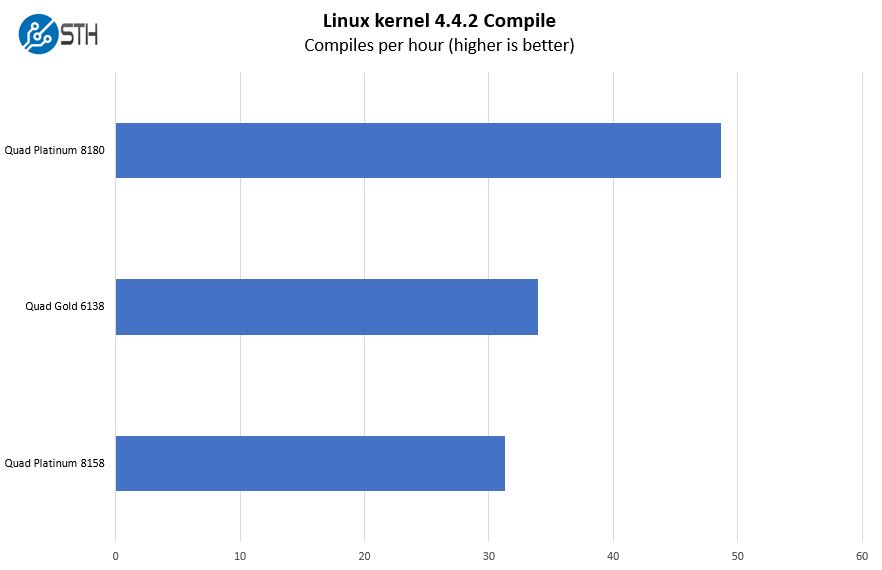
As we would expect, the quad Intel Xeon Platinum 28 core setups perform the best. We were slightly limited in terms of the number of different CPU SKUs we had four of in the lab, but we still wanted to give some sense of performance for a few different options.
c-ray 1.1 Performance
We have been using c-ray for our performance testing for years now. It is a ray tracing benchmark that is extremely popular to show differences in processors under multi-threaded workloads. We are going to use our new Linux-Bench2 8K render to show differences.
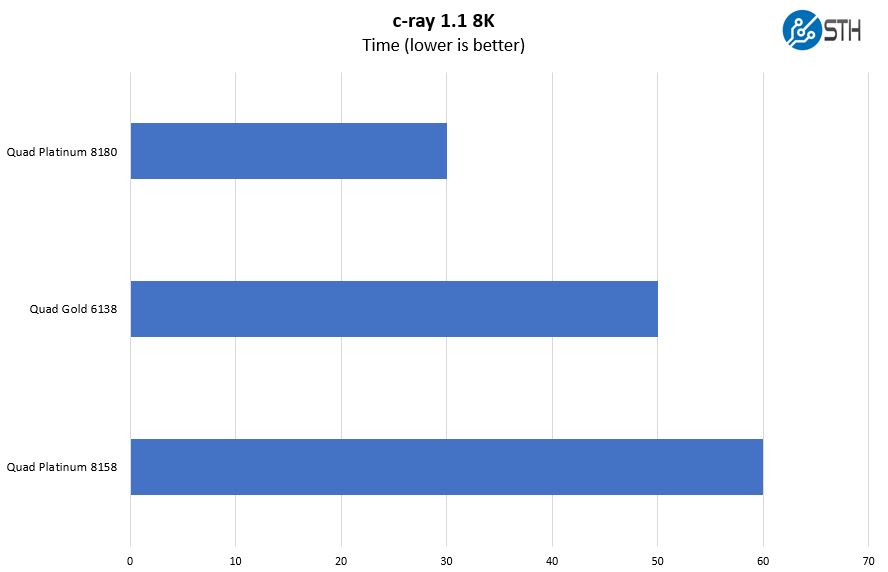
Since these are all Intel Xeon CPUs of the same generation, this ends up being tied to the number of cores and the clock speed those cores are running at.
7-zip Compression Performance
7-zip is a widely used compression/ decompression program that works cross-platform. We started using the program during our early days with Windows testing. It is now part of Linux-Bench.
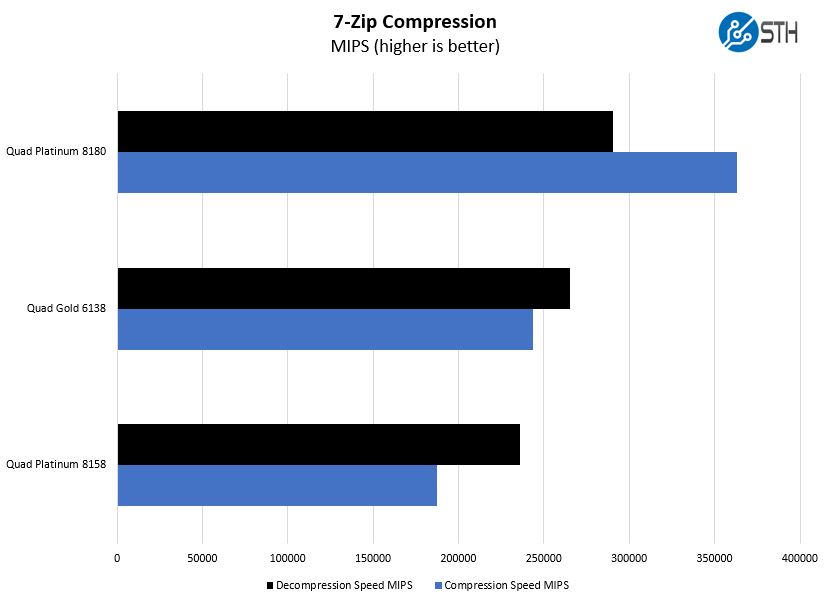
One can see that the rate of change for decompression and compression speeds change in the range of these quad socket systems. This is not something that shows up as well on dual socket systems.
OpenSSL Performance
OpenSSL is widely used to secure communications between servers. This is an important protocol in many server stacks. We first look at our sign tests:
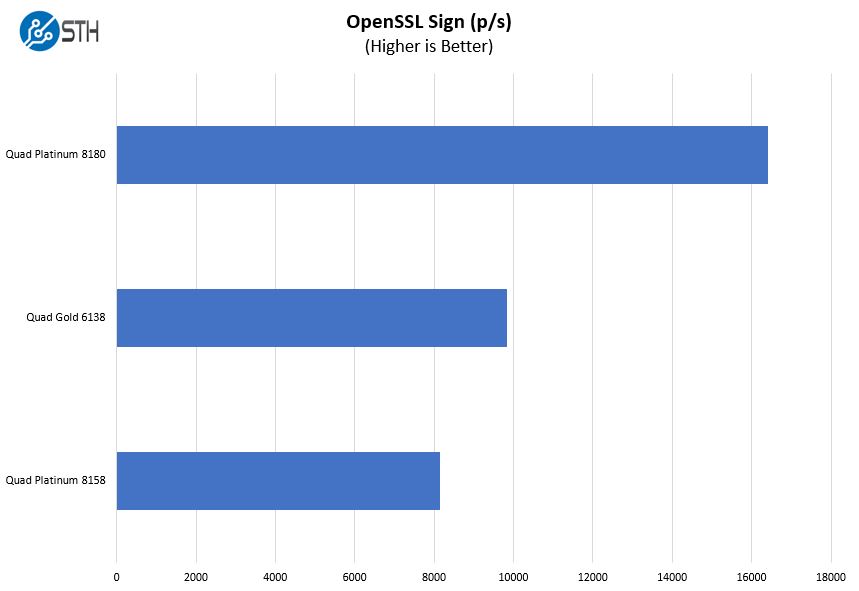
And here are the verify results:
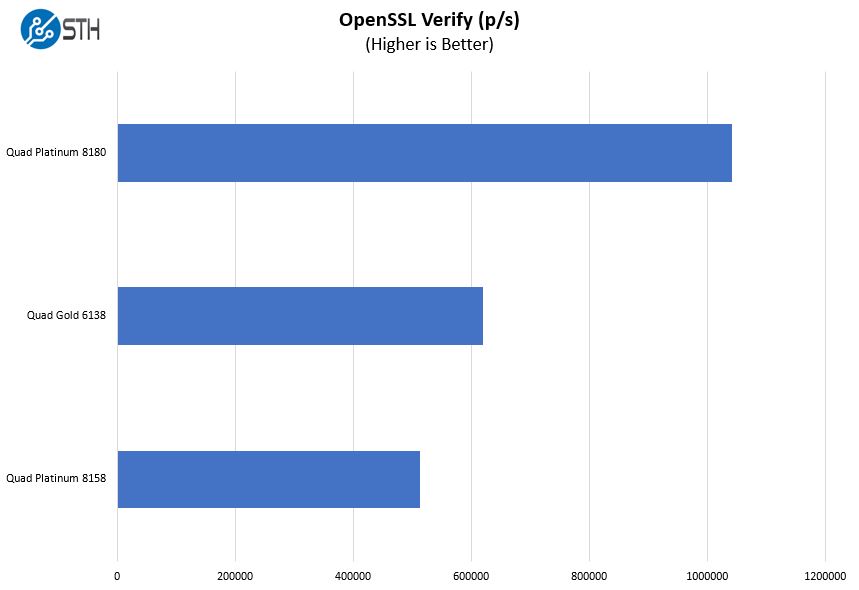
These types of servers are often used as web front-ends so OpenSSL performance is important. Again, more cores are helping.
Chess Benchmarking
Chess is an interesting use case since it has almost unlimited complexity. Over the years, we have received a number of requests to bring back chess benchmarking. We have been profiling systems and are ready to start sharing results:
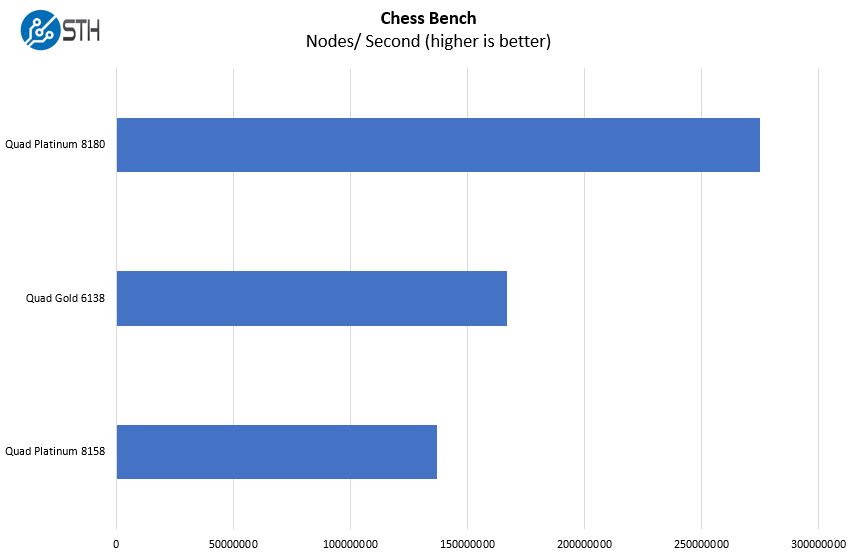
Chess stresses all of the CPU cores well as it is a complex mathematical problem. There are some applications that need pure number crunching power.
GROMACS STH Small AVX2 Enabled
We have a small GROMACS molecule simulation we previewed in the first AMD EPYC 7601 Linux benchmarks piece. In Linux-Bench2 we are using a “small” test for single and dual socket capable machines. Our medium test is more appropriate for higher-end dual and quad socket machines. Our GROMACS test will use the AVX-512 and AVX2 extensions if available. On the Intel Xeon E-2100 series system, this is only AVX2 since the platform does not support AVX-512 like Intel’s higher-end Xeon Scalable parts.
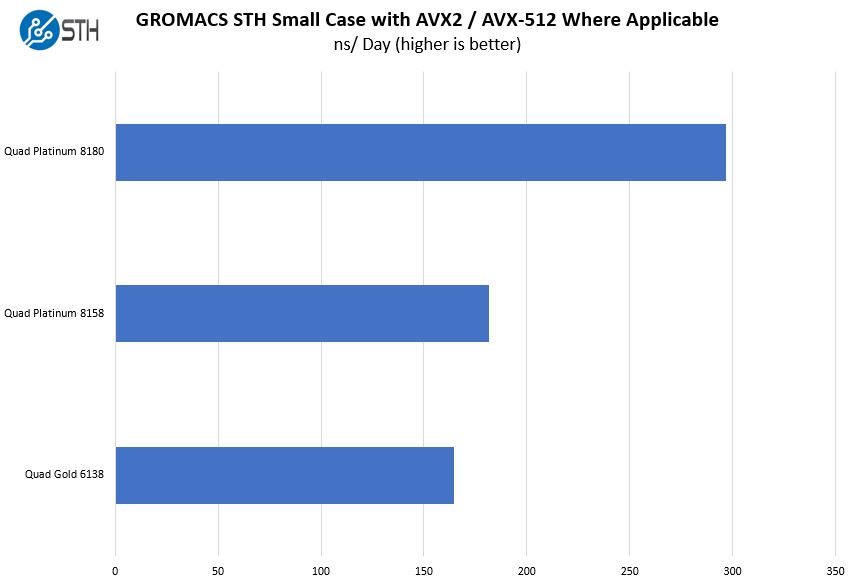
Here the Intel Xeon Platinum 8180 CPU option simply crushes. High TDP and plenty of execution units help tremendously.
STH STFB KVM Virtualization Testing
One of the other workloads we wanted to share is from one of our DemoEval customers. We have permission to publish the results, but the application itself being tested is closed source. This is a KVM virtualization based workload where our client is testing how many VMs it can have online at a given time while completing work under the target SLA. Each VM is a self-contained worker.
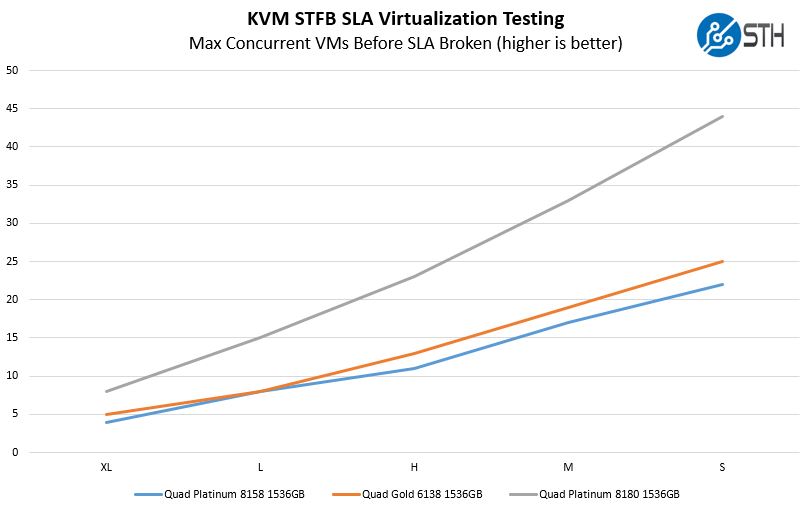
The results here are not exactly linear, but it shows that one gets fairly solid scaling between the different CPUs. We are going to have more configurations that we will be releasing data for here shortly.
In the last part of our review, we are going to focus on power consumption and give our final thoughts. on the platform.




They maybe could have noticed that AMD has a socket called TR4 before they used that for their server designation…
Thomas Supermicro was using -TR4 since 2015 in the 2011 era https://www.supermicro.com/products/system/1U/1028/SYS-1028U-TR4_.cfm and they’ve used it on many servers.
Maybe AMD should have noticed Supermicro called Intel platforms -TR4 when they had certain specs
No worries, the prefix still will show clearly the server is AMD, AS-2124…..